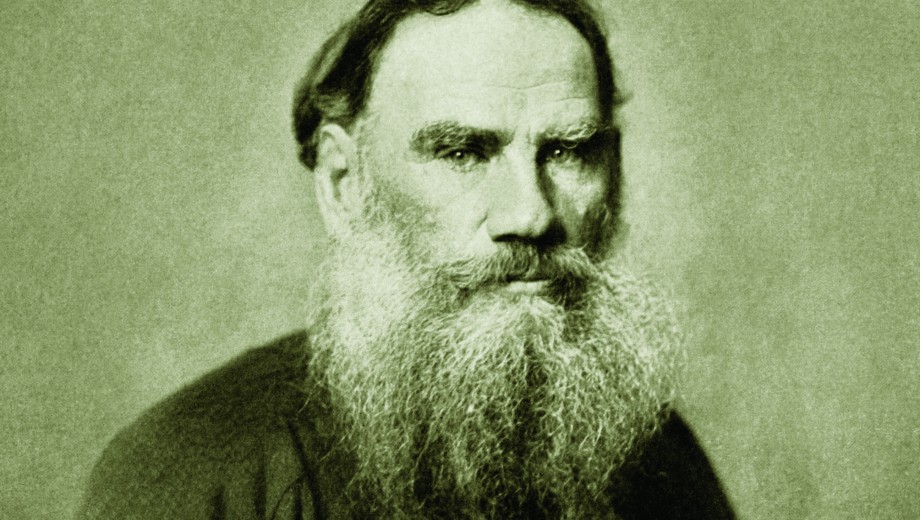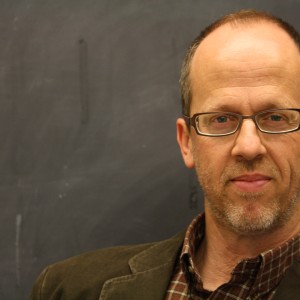There are novels. There are long Russian novels. And then there’s War and Peace. The book’s complexity and prodigious length—more than 1,200 pages even without the extensive endnotes—have given it a reputation as a literary crucible. But Tolstoy’s saga, originally published in serial form in 1865, is a page-turner with the long arc, well-wrought storytelling, and complex humor of the best HBO miniseries.
William Nickell, assistant professor in Slavic Languages and Literatures, is hoping to convert more readers into lovers of Tolstoy. His forthcoming companion to War and Peace aims to make the novel more accessible for modern audiences. He shared some of the reasons behind this campaign with Courtney C. W. Guerra, AB’05, who asked, “Why read War and Peace?”
Because it is not a “classic novel.” Like other works often thrown into this category, War and Peace is hardly conventional, and is not even easy to categorize. Tolstoy himself explained: “It is not a novel, still less an epic poem, still less a historical chronicle. War and Peace is what the author wanted and was able to express, in the form in which it is expressed.” Readers will be surprised by the book’s modern devices: stream of consciousness, cinematic point of view, shifting narrative voices. The great twentieth-century Russian author Isaac Babel said that when he read Tolstoy, he felt as if the world was writing itself.
Because it asks big questions in little ways. Tolstoy describes the Russian army’s use of guerrilla warfare, which broke then-conventional forms of battle, in which large forces that represented competing nations or alliances met in direct and ordered confrontation. His novel is built on the same principles, attacking big ideas with new strategies, broaching philosophical questions in boudoirs and social crises in salons. It opens as a confrontation with France approaches but delves into battles on the home front—arguments at a soiree, competition among young men, a struggle over a will—each reflecting elements that have led to the impending war with Napoleon.
Because it is “golden.” War and Peace is a product of the golden age in Russian realism, when authors figured out that they could paint a larger canvas, incorporate more diverse narrative structures, and simply do things that had never been done before. Readers began to view writers as spiritual fathers and authors of national narratives, and believed that literature could, and would, change the world.
Because it is entertaining. Tolstoy wrote War and Peace during a period when he was reading English sensation novels, full of theft, murder, and seduction, but also adultery, bigamy, insanity, and incest. He was also learning from peasant children. “War and Peace is epic in scope as well as tone, relating a tale that still staggers the imagination.”In a famous essay describing his experience teaching writing in a village schoolhouse, he regretted corrupting the children’s talents with his Europeanized sensibility; left to their own devices, they could relate stories with the pithy vitality of folktales. Tolstoy brought this spirit of oral tradition into his novel, and later told Maxim Gorky, “Without false modesty, it is like the Iliad.”
Because it tells a great story. War and Peace is epic in scope as well as tone, relating a tale that still staggers the imagination. Napoleon entered Russia with an army of 600,000 and left with only a tenth of that number. But if the idea of a long war narrative is unappealing, know that a far greater portion of the text is devoted to the “peace” episodes, and that both sides of this divide feature some of the most memorable characters and scenes in all of literature.
Because it is a literary mecca. When I tell people of my project I find myself receiving, as if in a confessional, progress reports on this pilgrimage, ranging from, “Oh, I really would like to read it, but I’m intimidated,” to, “Oh, I read that—it was wonderful!” The first goal of my book is not to offer a major new interpretation, but instead to help readers move from the first category to the second.
Find more reasons to read War and Peace and recommendations on choosing a translation.



Comments
Literature
On page 1127, War and Peace is almost completed and I feel a great sense of completion, but loss as if I am seeing an old friend leave. I did a great amount of research on the timeline and generals on all sides, both French and Russian. It has impacted me more than I can say. I have discussed the book with younger students from our local community college, and they report that they never read an entire book in their English or Literature classes. What a pity for them. What a sense of non-completion. War and Peace deserves to be read in its entirety or why do anything half-measured!